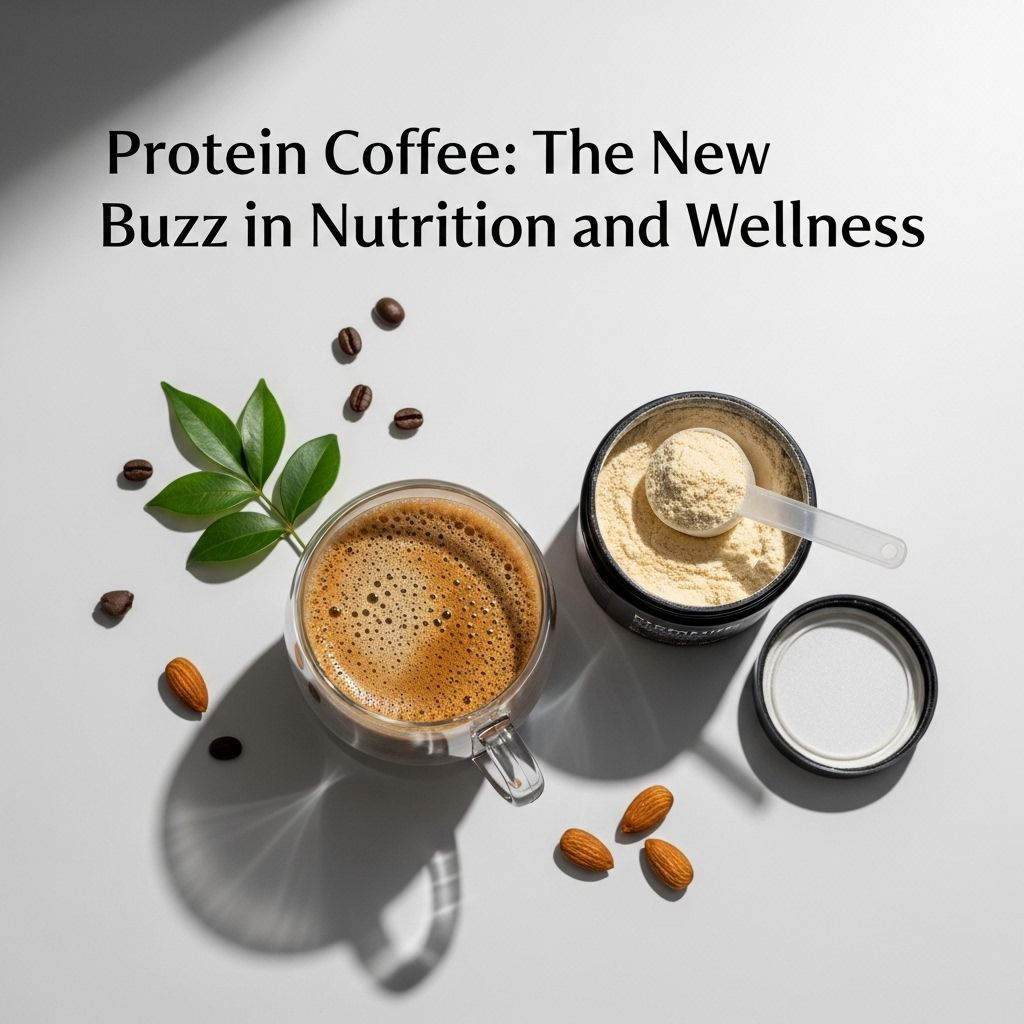Protein Coffee: The New Buzz in Nutrition and Wellness
Learn how protein coffee can boost energy, increase satiety, aid muscle recovery, and support your health goals.

Protein coffee—a blend of brewed coffee and protein, often from protein powder—has become more than a fleeting trend. Embraced on social media as “proffee,” it combines the beloved energizing effects of coffee with the satisfying, muscle-supporting benefits of protein. Whether you are an athlete, on a weight management journey, or looking to get more out of your morning coffee ritual, protein coffee offers a simple, science-backed nutrition upgrade.
What Is Protein Coffee (Proffee)?
The term “proffee” originated in the early 2020s, exploding in popularity across platforms like TikTok and Instagram. The idea is straightforward: combine brewed coffee or espresso with protein powder or a ready-to-drink protein supplement. This union transforms a typically low-protein drink (plain black coffee has about 0.2 grams of protein per 6-ounce cup) into a beverage offering 15–25 grams of protein or more per serving.
- Traditional coffee beverages: Low in protein (black coffee ~0.2g per cup, latte ~4.4g per cup if made with dairy milk).
- Protein coffee: Typically contains between 15–25g of protein per serving depending on choice of protein additive.
This simple nutritional hack is valuable for:
- Those with higher protein needs (athletes, older adults, those following high-protein diets).
- People who struggle to consume enough protein in the morning.
- Anyone looking for a more satiating, nutritious alternative to plain coffee or sugar-heavy breakfast options.
How Protein Coffee Works in Your Body
Protein coffee brings together two powerful nutritional components—caffeine and high-quality protein—for a synergistic effect. Here’s how the body processes this beverage:
- Caffeine absorption: Peaks in the bloodstream within 30–60 minutes; half-life of 5–6 hours.
- Protein digestion: Slower to digest, providing a prolonged amino acid release and extended satiety.
- Consumed together, protein slows caffeine absorption. This can reduce “jitters” and smooth out energy spikes.
As a bonus, combining protein and caffeine can:
- Enhance metabolism (combined thermogenic effect on calorie burning and fat oxidation).
- Stabilize blood sugar levels and improve fullness, curbing mid-morning hunger.
Natural Protein Content in Coffee Beans
Even before you add protein powder, coffee itself contains natural proteins—green coffee beans have about 8.5–12% crude protein content, most of which is altered and modified during roasting. Coffee silverskin, a roasting byproduct, is also protein-rich and supplies essential amino acids. However, brewed coffee itself contains little protein compared to the amount gained when protein powder or supplements are added.
Read full bio of Sneha Tete












